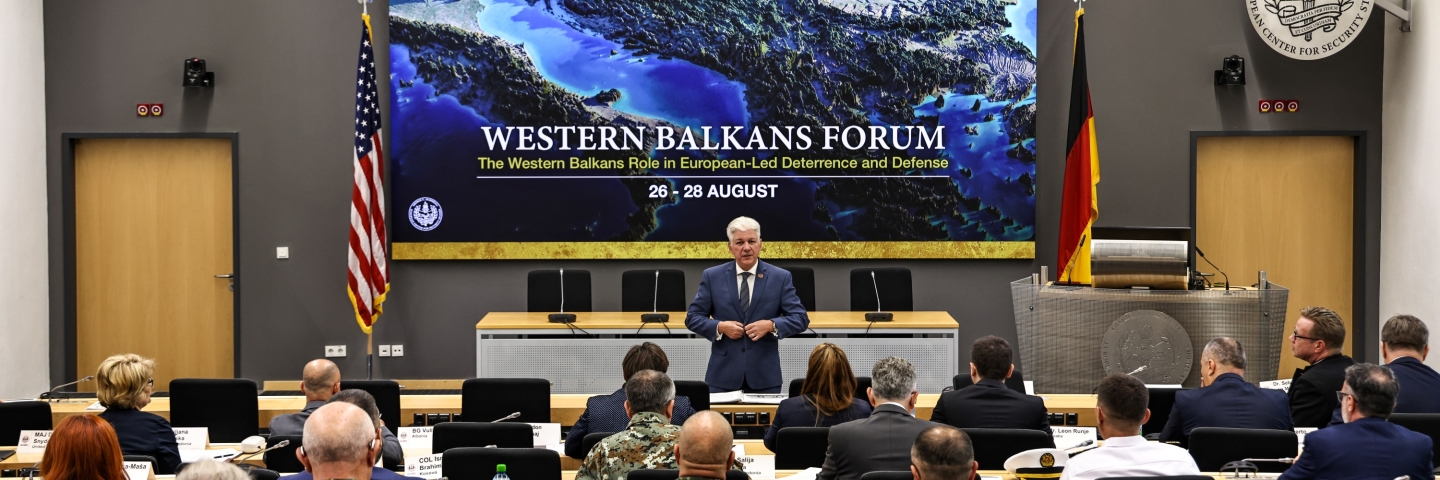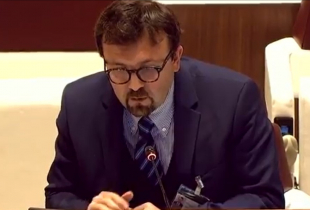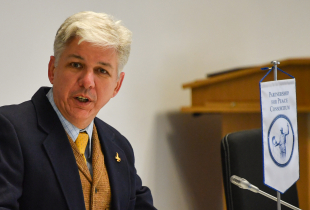
Western Balkans Forum Opens With Focus on Contributing to European-led Deterrence, Defense
GARMISCH-PARTENKIRCHEN, Germany — The Western Balkans Forum opened Aug. 26 at the Marshall Center with calls for greater regional cooperation, resilience, and progress toward Euro-Atlantic integration.
“The Western Balkans remain strategically vital for European security,” said Barre Seguin, Marshall Center director, during opening remarks. “This forum is an opportunity to strengthen cooperation, reduce vulnerabilities, and advance the region’s place in European-led deterrence and defense.”
The three-day event brings together senior defense officials, academics and policy experts from across the Western Balkan nations to examine the region’s role in European-led deterrence and defense.
Opening sessions underscored the progress Western Balkan nations have made toward NATO and European Union membership, while noting that the region continues to face security challenges including organized crime, corruption, malign foreign influence and unresolved political tensions.
Forum speakers stressed that NATO and the EU remain the strongest frameworks for regional stability but said local governments must also assume greater responsibility for building defense capacity and strengthening cooperation.
“The stability of Southeast Europe is critical for European-led deterrence and defense,” said Sebastian von Münchow, Ph.D., Marshall Center professor of regional security studies, during the opening session. “The Western Balkans must continue to move forward on Euro-Atlantic integration, while also strengthening regional ties to resist corruption, organized crime and foreign malign influence.”
On the second day, officials from other countries in the region shared their perspectives on national defense reforms and regional dynamics.
Brig. Gen. Vullnet Doka, defense and security advisor to the president of Albania, described the Albanian armed forces significant transformation since joining NATO in 2009 and the efforts to continue modernization in areas such as cyber defense and defense industry revitalization. “The political will is there, and the social support is there,” Doka said. “We are committed to NATO, to our partners, and to continuing modernization so that Albania remains a strong contributor to collective defense.”
Several speakers noted that while NATO membership has stabilized and strengthened security, progress remains fragile, with domestic political instability and external influence threatening to undermine recent achievements.
“Defense cooperation in the Western Balkans is not yet strong enough. Too often it only happens when encouraged by the U.S. or the European Union,” said Montenegro diplomat Todor Goranović, who is serving at the Royal College of Defense Studies in London. We must take greater ownership of this cooperation ourselves.”
Participants emphasized that national resilience must go beyond military modernization to include stronger democratic institutions, better strategic planning and public trust in Euro-Atlantic integration.
“The future of this region is not destiny,” said Aleksandar Ivanov, Ph.D., professor of security studies at the University St. Kliment Ohridski in North Macedonia. “It will be determined by the choices our societies and leaders make, between Euro-Atlantic integration or vulnerability to malign influence.”
The regional forum continues through Aug. 28 with panels and discussions focused on strengthening regional security frameworks, countering hybrid threats and advancing the Western Balkans’ role in European-led deterrence and defense.

